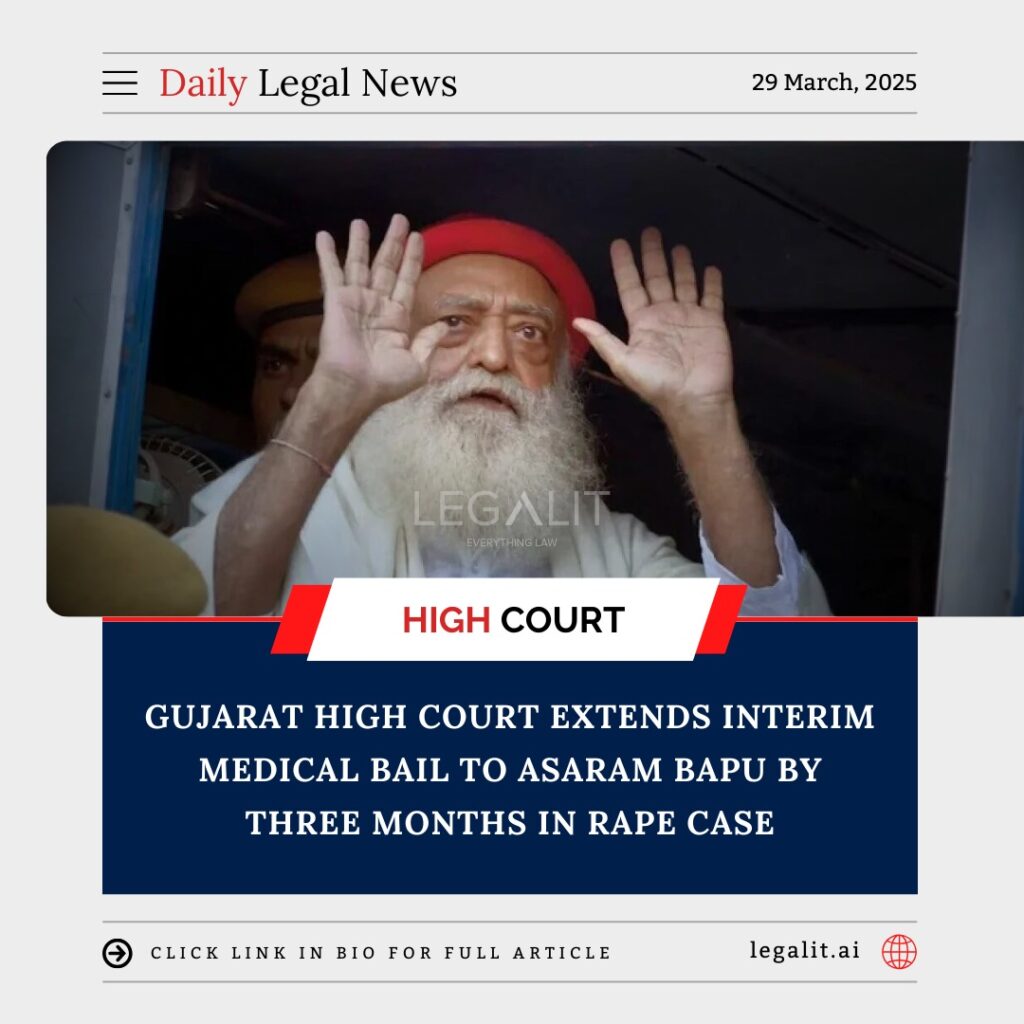
Background
The Gujarat High Court has extended the interim medical bail granted to self-styled godman Asaram Bapu by three months in connection with a rape case. Asaram, who is serving a life sentence in a separate rape case, was previously granted temporary relief due to his health condition. The current extension allows him to continue receiving medical treatment while remaining out on bail.
Court’s Rationale
- Medical Grounds
- The court considered medical reports highlighting Asaram’s deteriorating health.
- His legal team argued that specialized care is required, which cannot be provided in prison.
- Humanitarian Considerations
- The court emphasized the humanitarian aspect of granting bail for life-threatening health issues.
- It acknowledged that denying medical care would violate fundamental rights under Article 21 of the Constitution.
- Conditions for Bail
- Asaram must not engage in public events or make public statements.
- He is required to submit periodic medical reports to the court.
Existing Legal Framework for Medical Bail
- Section 439 of the CrPC
- Empowers High Courts and Sessions Courts to grant bail in non-bailable offenses based on exceptional circumstances.
- Supreme Court Guidelines
- Courts must balance the gravity of the offense with humanitarian concerns when considering medical bail.
- Prisoner Rights
- Article 21 guarantees the right to life and health, including for those in custody.
Implications of the Ruling
- Legal Precedent
- The ruling may influence future medical bail pleas in high-profile cases.
- Victim Rights Concerns
- Victims’ rights advocates argue that extended bail could delay justice and undermine the trial’s integrity.
- Monitoring Mechanisms
- Ensuring compliance with bail conditions requires stringent judicial oversight.
Conclusion
The Gujarat High Court’s decision to extend Asaram Bapu’s medical bail underscores the judiciary’s approach to balancing legal accountability with humanitarian concerns. While affirming the right to health for all individuals, the court also imposed conditions to prevent misuse of the bail order. This case highlights the ongoing tension between ensuring fair treatment for the accused and safeguarding the interests of the victims.